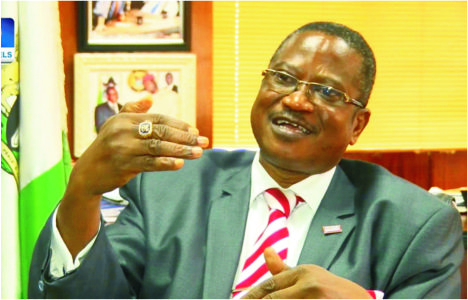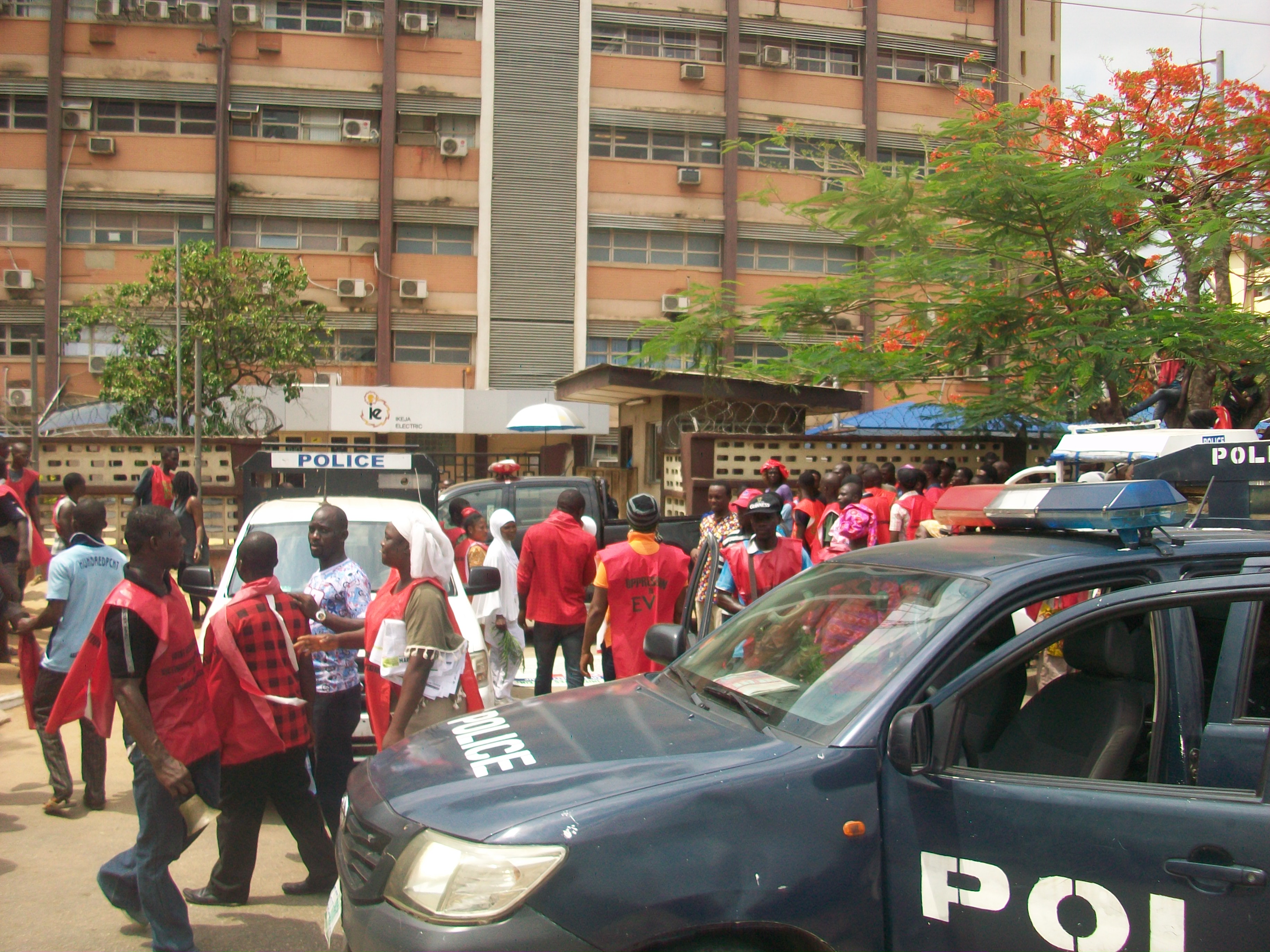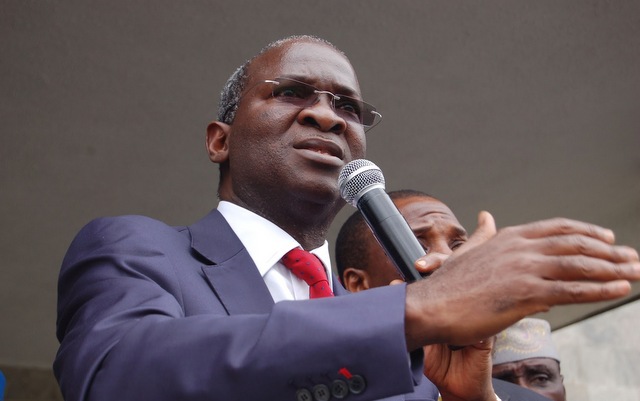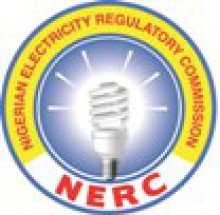Business
Eko Disco spends N20bn on meters — CEO
Published
10 years agoon
By
Olu Emmanuel
Oladele Amoda, CEO of Eko Distribution Company in this interview speaks on the challenges facing electricity distribution companies and expectations in 2016. Excerps:
RECENTLY, the Federal Government approved a new electricity tariff plan, what does this portend for the industry, especially Eko Distribution Company?
What it means now is that we are going to pursue vigorously our metering rollout plans to meet the yearnings of customers. But for those who cannot wait for the rollout plan to get to them, they can key into our Credited Advanced Payment Metering Implementation (CAPMI) programme to avoid estimated bills which do not favour the company or the customers.
We are now investing in meters with a clear focus on the customer, who does not favor estimated billing. In 2015, Eko spent over NGN20 billion on meters alone to replace the entire system for its 400,000 customers. We also have high-consuming industrial and commercial customers, numbering around 6,000-7,000. Those entities consume over 40% of our energy and, paying more, are the current focuses of our metering efforts. We want to make sure that no one is cheating the other, and that everyone has a functional meter that they are comfortable with. This way, whatever bill we give our customers, they will be satisfied with.
Adequate gas supply has always been the bane of the industry, has this inadequacy in the supply of gas affected your distribution efforts in any way?
We are not getting enough power from the grid because of an inadequate gas supply to the generators, brought about because of vandalism to the gas pipeline, which has reduced the level of generation throughout the country. Also, the cost of gas for power generation is low compared with gas sold to the rest of the market. Gas suppliers naturally favor higher price bracket customers. The government has moved on this, having increased the cost of gas per unit. It is ready to supply gas if the pipelines are renovated. And as far as the grid is concerned, there is a sharing formula where everybody gets a percentage of what is generated. For instance, at Eko, we have 11% of whatever is generated on to the grid. What we require today is a minimum of 700MW. But we only receive on average 300MW, or even below 200MW. For a number of months we have received a daily allocation in the morning of not above 300MW. Our supply tends to dwindle in the afternoon, as there is insufficient gas for the generators. We allocate based on what is available to us, but Eko cannot continue to operate like this, and is seeking a complimentary source of power for its network. Now, we are encouraging private companies to set up generation plants the output of which would be sold to us for addition to what is available on the existing grid. Such embedded power is not subject to grid intervention. We have been working on this for almost nine months now. A total of 43 companies have indicated a willingness to set up plants of various capacities and in assorted locations. These companies should provide an additional 400MW, though it will be gradual process as equipment needs to be received and installed. Currently, Eko has almost completed a bilateral power agreement with existing power plants that are not tied to direct agreements.
What is the current electricity supply to your customers like at the moment?
At the moment, we are providing power for between 12-15 hours a day. We should be able to increase that to 18-20 hours a day. And as more companies get set up and sell us energy, we can increase the number. In the future, generation for the grid will be more stable. Bear in mind that there are 10 IPP power stations currently being commissioned. By the time those come on stream (their total output is 4,500MW) there will be thousands more megawatts added. And then there are privatized power stations that are also increasing capacity. So the future is bright for the power industry in Nigeria and customers merely have to exercise some patience. Very soon we intend to light up Lagos.
What are the challenges of investments faced by Discos so far?
Every investor that invests in a business will want to do it well so that he can make profit. The more electricity we distribute, the more profit we shall make so it is in our interest to have more light. We want to distribute more so we can recoup our investment over time, but the power sector is not like any other quick money business. It is a long term thing. The investors that paid for these utilities invested money right from takeover and have been spending billions of naira in the utilities.
There are so many things that we are doing that people don’t see. For instance, we spend much to improve the Information and Communication Technology (ICT) within to improve the billing system. What we inherited from the PHCN was a very ugly billing method creating occasions for duplication of bills. Some bills were drawn fictitiously in connivance with some staff who will go to the computer room to create new billing address, leaving the old one indicating that they owe much debt. So we invested to clear such mess and we invested on equipment like transformers and many other things.
The Discos met a lot of challenges, some of which we did not know until we took over properly. We are not complaining but we are saying that there should be cost-reflective tariff showing clearly the cost of delivering electricity to the door steps of consumers. In the days of PHCN, there was subsidy which helped a lot but since we took over, there has been nothing like that.
However, we thank the government for the recent CBN intervention fund which was a loan they gave to us at 10 percent interest rate for a 10-year period but we are saying they need to do more to solve this problem. We also have a lot of losses especially due to non-payment of bills
What are your expectations for 2016?
In addition to the 250 million invested in the network there are some other funds. For example we recently received a Central Bank of Nigeria (CBN) intervention. This money is being ploughed into addressing network problems. And beyond the network itself, we are looking to enhance the workforce. We want to retrain our workers and recruit more technicians, as well as invest in an electricity management system that enables the automation of our activities. This will make jobs easier and allow us to respond faster to customers. Currently, we are in a period where owners are investing, rather than looking at profits. The massive investment this involves means that five years from now, we will have proven to the public the capacity of the private power sector to work effectively.
You may like
Trending

 Health5 days ago
Health5 days agoDeclassified CIA memo explored concealing mind-control drugs in vaccines

 Entertainment1 week ago
Entertainment1 week agoSimi addresses resurfaced 2012 tweets amid online backlash

 Crime6 days ago
Crime6 days agoSenior police officers faces retirement after Disu’s appointment as acting IGP

 Education1 week ago
Education1 week agoPeter Obi urges JAMB to address registration challenges ahead of exams

 Health1 week ago
Health1 week agoNAFDAC issues alert on suspected revalidated SMA Gold infant formula

 Comments and Issues7 days ago
Comments and Issues7 days ago20 Critical Fixes to Save Nigeria’s Democracy from Electoral Fraud

 Football7 days ago
Football7 days agoMartínez ruled out of Everton clash with calf injury

 Latest6 days ago
Latest6 days agoICPC yet to respond to El-Rufai’s bail request as arraignment date looms






